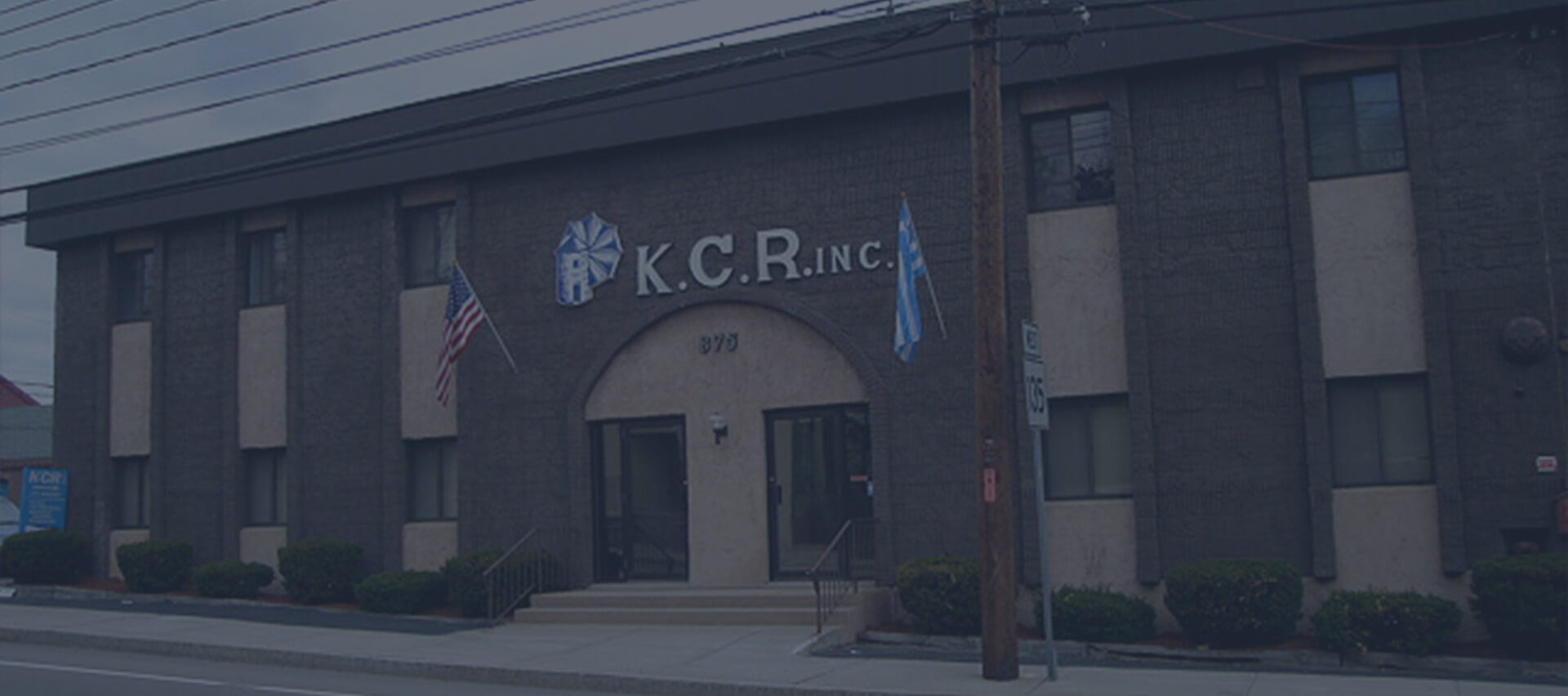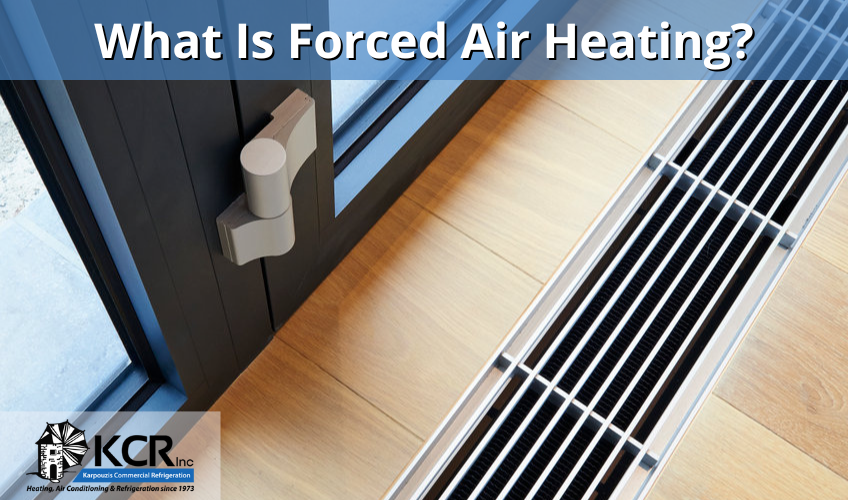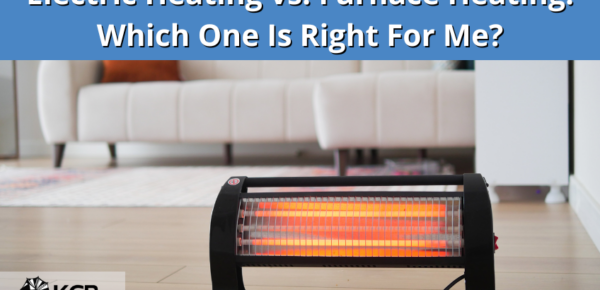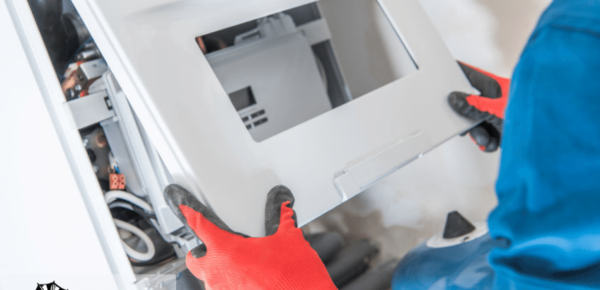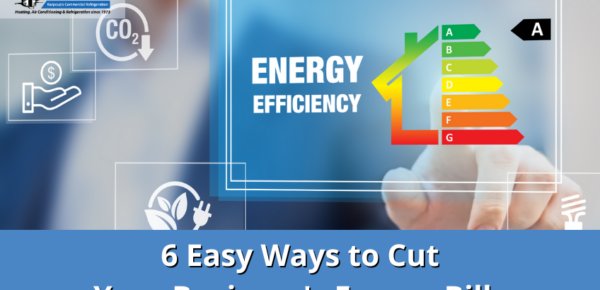What Is Forced Air Heating?
Upgrading from an outdated heating system can be a daunting task, yet it opens the door to exploring advanced HVAC systems that can enhance comfort and reduce energy costs. If you’re dealing with an inefficient boiler, a clunky oil furnace, or electric baseboard heaters, the transition to a modern system could significantly impact your winter energy bills. Choosing the right home heating system is crucial, as it directly influences your comfort, energy expenditure, and environmental footprint.
Are you considering a switch to a more efficient heating solution? Forced air heating systems are a popular choice, known for their ability to distribute heat evenly throughout your home and integrate seamlessly with cooling systems for year-round comfort.
In this comprehensive guide, we delve into the mechanics of forced air heating, compare it with the right home heating system, and outline what makes it a superior choice for modern homes. Whether you’re building anew or retrofitting your home, understanding the nuances of forced air heating will help you make an informed decision tailored to your heating needs.
How Do Forced Air Heating Systems Work?
Forced air heating systems employ air as a transfer medium for heat. Forced air systems rely on vents, ductwork, and plenums to distribute air throughout the surrounding area that might be your home or any commercial building. A plan is a connected unit with ducts and vents. These ducts and vents carry the air that heats or cools the unit.
A forced air system utilizes a single thermostat and supplies heat to the entire household by fan-forced air through the air ducts or vents. Usually, air volume cycles continuously through the system by air ducts within the house.
The Operating Mechanism of a Forced Air Heating System
The controlling center of a forced air heating system is a single thermostat. It turns the unit on or off according to the temperature setting. As soon as the system turns on, heat production begins. The furnace fan pushes the air over the heat exchanger or other heating elements.
After this, the process of distribution of warm air begins via your ductwork and out registers. Generally, you can adjust the registers to control the amount and direction of the airflow throughout your home. The combustion of gas or the flow of electricity stops as soon as the system reaches the desired set temperature.
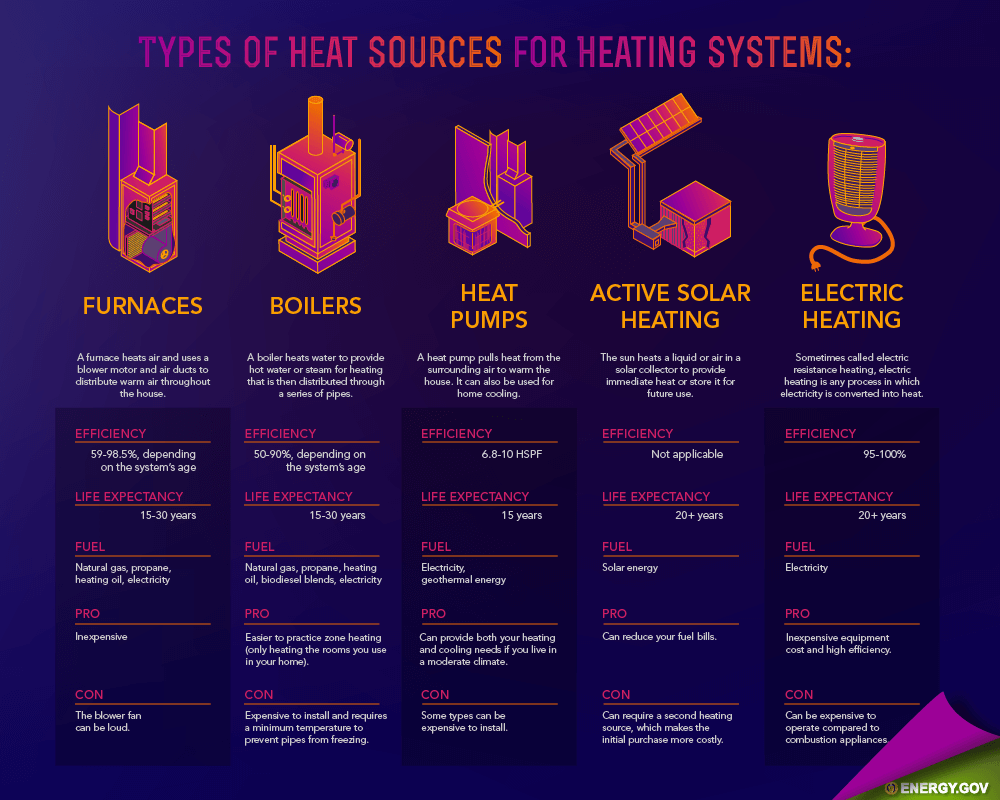
Why Should You Install a Forced Air Heating System?
There are various reasons why you might install a forced air heating system. It is a highly comprehensive, effective, affordable option that is quick and efficient. It is a sturdy heating method that gives you the following benefits and reasons to install it:
1) Heating Duration
Unlike any other heating system, a forced air system warms the air and pumps it throughout your home via ductwork quickly and efficiently. You generally have to wait for the water to heat up in other heating systems and then distribute it through the central system.
As soon as you turn on your heating system, rooms and spaces feel warmer more quickly since the incoming air from the vent does not radiate. Instead, it circulates throughout the room. This process helps to avoid a heating emergency.
2) Convenient Installation Process
If you wonder if installing a forced air system might rip apart your floors and adjust other systems, we have good news. A forced air heating system can work with your existing system without extra effort.
Moreover, if you have existing ductwork for an air conditioning unit, it hastens the installation process even more. The good news for all air conditioning users is a new forced air heating system that can function well with its ductwork. Hence, the installation process is minimal and free of any hassle.
3) Cost-Effective
Compared with radiant heaters, forced air heating systems are highly budget-friendly and effectively maintain a reasonable price. It is a highly economical solution. As we discussed, the installation procedure is easy and cost-friendly. New furnaces reduce the overall cost of your heating repair.
Is your heater working at 100%?
4) Reliable
If we talk about the reliability of the forced heating system, forced air systems are much more reliable than electric or heat pumps. The ductwork is convenient and straightforward. They are also durable. It has few moving parts that might break apart or cause fatal damage.
The components of this heating system include fans, belts, or motors that are easy to substitute in case of any minor issue. Hence, you can easily install a forced air heating system with peace of mind.
5) Air Filtration
Many people have concerns about air quality. Having safe and high-quality air is essential for your health and the health of your family members.
When considering a forced air heating system, the air quality also improves. The incoming air undergoes a filtration process, keeping the indoor air clean.
6) Energy Costs
Forced air heating systems are highly energy-efficient and also mitigate energy costs. Standard heating systems use natural gas, which is more than traditional electric systems.
Forced air heating systems today come with energy-efficient features that significantly reduce energy costs.
Proper Maintenance of a Forced Air Heating System
Regular maintenance is essential to keep your forced air heating system running smoothly. One of the most sensitive HVAC components in maintaining a healthy HVAC system is the air filter. Air filters trap dust, pollen, and other airborne particles, preventing them from circulating throughout your home. If the air filter is dirty or clogged, it can restrict airflow, forcing your system to work harder, which may lead to reduced efficiency and even system malfunctions. This can not only increase your energy bills but also shorten the lifespan of your heating system.
It’s crucial to replace and clean the filters every month to ensure optimal air quality and system performance. Regular filter maintenance ensures that your system remains efficient, extends the life of your unit, and keeps your indoor air clean and healthy.
Similarly, your furnace requires regular tuning from a professional heating repair service. Our technicians are committed to providing premium and high-end residential HVAC services, ensuring that every component of your system, especially the air filters, is in top working condition to support the overall functionality and efficiency of your forced air heating system.
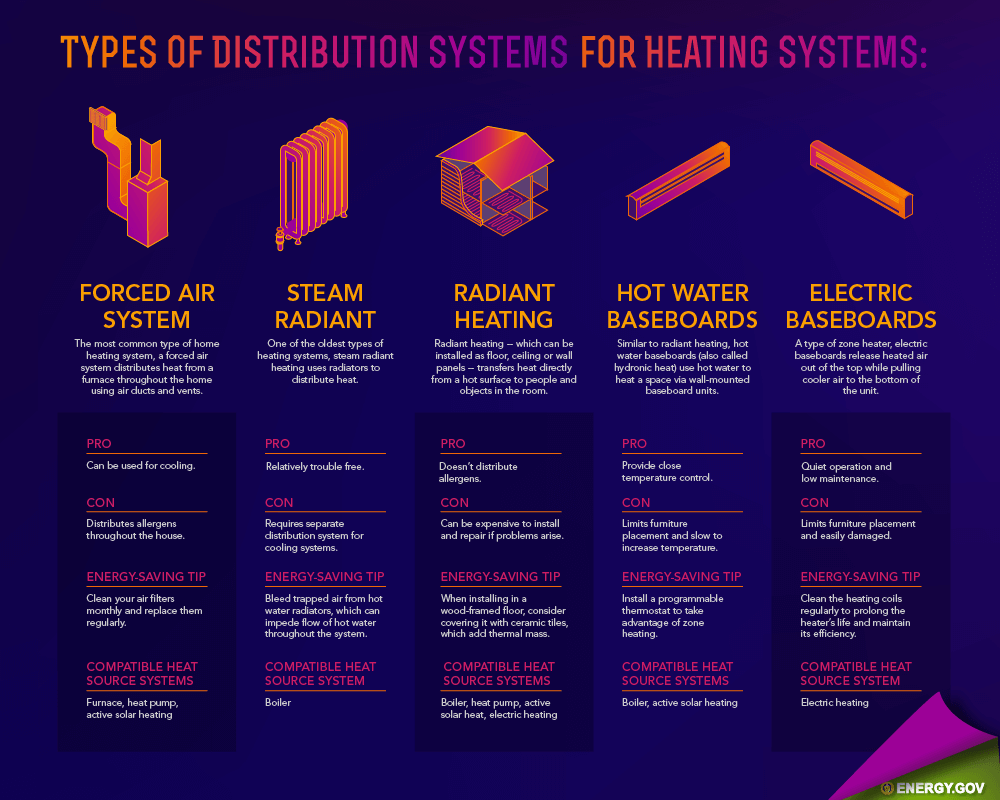
How to Find the Best Forced Air Heating For Your Home
Are you looking to replace your furnace? A forced air furnace might be the right choice if you want to avoid a heating emergency or are trying to replace your central cooling system. In contrast to a central heating system, a forced air furnace is a heating and ventilation system that pulls air from your home via ducts, heats it, and then circulates it back inside as warmer air. This option is popular since it can be an effective approach to attaining the ideal temperature and humidity in your home.
But the big question is, how do you select the ideal forced air furnace? There are several ways to ensure that you make the best choice when making a decision. Of course, you can seek advice from reputable HVAC service providers like KCR to help you make the best decision, but you can also conduct some research before buying one. With expert advice, you’ll be well on your way to a properly warm house. Here are some pointers to assist you.
1) Check Out the AFUE Rating
The AFUE rating is vital in determining how effective your furnace will be. The annual fuel utilization efficiency, or AFUE, is a metric you can use to gauge how energy-efficient your furnace is. Knowing what it entails in advance will assist you in selecting the perfect forced air furnace for your home.
You can monitor the fuel your furnace can burn with its percentage display. For instance, if your furnace has an AFUE of 85%, that implies that 85% of the fuel is converted into heat while the other 15% evaporates through emissions, inadequate burners, or air leakage. Note that the percentage range is between 30% and 100%.
An AFUE value of over 90% indicates a high-efficiency furnace, whereas an AFUE of around 80% indicates a more conventional furnace. Therefore, when looking for your forced air furnace, aim to choose one that is on the higher side of the percentage range because the higher it is, the more efficient the system will be.
2) Use the Right Type of Fuel
Every furnace requires fuel to operate, and this fuel might be either gas, oil, or electricity. Depending on your home, your spending limit, and how efficient you want your furnace to be, you may determine which fuel type will work best for you.
Since gas is less expensive and readily available to operate than the others, the most used type of furnace is a gas-fueled furnace. Gas-fueled furnaces are the most energy-efficient and ideal choice for swiftly heating your home. However, the gas hookups necessary to utilize this furnace are not accessible in every house.
An electric or oil furnace will be your best option if your house cannot accommodate a gas furnace. Despite having a little higher operating costs, an oil or gas furnace is still a wise choice because of its excellent heating efficiency. An electrical or oil furnace must utilize electricity to generate heat. Thus, its operating costs are typically much higher. A gas furnace will probably be a fantastic alternative if you have the choice.
3) Choose the Right Sized Furnace for Your House
The construction of every furnace varies. Others work better at heating smaller homes, while some accommodate larger spaces. But which one fits your home the best? Maintaining acceptable energy expenditures may depend in part on having the right-sized furnace.
When choosing a forced air furnace, you should ensure that the heat output is appropriate for the size of your house. Before you search for a new furnace, determine the overall square footage of your home. Next, you should determine the BTU (British Thermal Unit) value for the climate of your environment.
The climate in Massachusetts is humid continental; thus, its BTU value would be between 50 and 60. The next step is to multiply the square footage of your home by the climate BTU for the region, and the resultant value will indicate the size of the furnace you need to purchase. For instance, if your property is 2,000 square feet, and your area needs 60 BTUs per square foot, your furnace must have a minimum heat output of 120,000 BTU.
If your home already has a furnace, you may forego the entire process and check your furnace for the indicated BTU amount. In either case, this information can help you select the right forced air furnace for your house.
4) Look for a Furnace with Distinctive and Practical Features
Sometimes, a furnace will have unique features that increase its efficiency or provide extra heating options. You won’t miss out on those features later if you are aware of them upfront.
A feature that might come with a furnace is a variable-speed blower. The blower fan on most furnaces either runs continuously or can only be turned on or off. However, you may change the fan’s speed using a variable-speed blower, which may reduce costs and help with humidity control. You might also get a furnace with many heating settings, giving you the option of a single-stage, two-stage, or variable-stage furnace. These solutions may boost ventilation in your home and allow you greater control over your furnace’s capacity.
We Provide Affordable HVAC Maintenance
5 Ways to Find the Right Installer for Your Forced Air Heating
When the time comes to install a forced air heating system, choosing the right installer is as crucial as selecting the system itself. A skilled and reliable installer ensures that your heating system operates efficiently, safely, and reliably. Homeowners should consider the following avenues to find a professional installer:
1) Local HVAC Contractors
Start your search locally. Local HVAC contractors often come with the benefit of being nearby for follow-up service and support. They are familiar with the regional climate and specific local regulations for installations. You can find these professionals through a simple internet search for “HVAC contractors near me” or by checking local business directories. Look for companies with a strong presence in the community and a history of good service.
2) Manufacturer Authorized Dealers
Many manufacturers of forced air heating systems have networks of authorized dealers. These dealers are often trained and certified to install the manufacturer’s products. They can provide expert advice on the right system for your home and ensure that the installation is done according to the manufacturer’s specifications. You can find these authorized dealers on the manufacturer’s website or by contacting their customer service.
3) Referrals from Friends and Family
Sometimes, the best recommendations come from your network. Ask friends, family, or neighbors who have recently had a forced air system installed. They can provide firsthand insights into their experience with their HVAC maintenance, the level of service, and their satisfaction with the system’s performance.
4) Online Reviews and Ratings
Websites like Yelp, Angie’s List, and the Better Business Bureau offer reviews and ratings for local businesses, including HVAC contractors. These platforms can provide a wealth of information about a contractor’s reputation, quality of work, and customer service. However, be discerning when reading reviews, focusing on detailed and balanced testimonials.
5) Professional Associations
Organizations like the Air Conditioning Contractors of America (ACCA) or the Sheet Metal and Air Conditioning Contractors’ National Association (SMACNA) have directories of professional members who adhere to certain standards of quality for residential and commercial HVAC.
Once you’ve identified potential installers, it’s essential to verify their credentials. Check for necessary licenses, insurance, and certifications. It’s also advisable to request quotes from multiple installers to compare prices, but remember, the cheapest option may not always be the best. The quality of installation will impact the efficiency, performance, and lifespan of your heating system, so ensure you choose an installer with the right experience, credentials, and reputation.
Key Takeaways
On the whole, a forced air heating system can render a multitude of benefits to your home. It’s economical, cost-effective, and a reliable solution for households. We have discussed all the key elements, features, and working sequences of the forced air heating system to make an informed decision.
It’s easy to get confused when deciding which forced air furnace is best for your home. Very few people know about a furnace’s operation or how to install or operate one. As a result, it is best to visit a reputable heating and cooling service company to ensure you choose the appropriate furnace for your home.
Don’t risk a heating emergency – get a new HVAC solution before winter hits. Now is the perfect time to upgrade to a new forced air heating system. We hope our guide helps you to make the best decision.
Available for 24/7 Emergency Heater Repair
Think You Need a New Home Heating System?
If you think you need a new home heating system, don’t despair. Replacing an old home heating system will help you save money in the long run. Even when you feel you’re not ready to fund a replacement, regular maintenance can help prolong the lifespan of your unit. Investing in heating repair may make sense if the unit is not too close to its life expectancy.
THE FORCED AIR HEATING SYSTEM EXPERTS
Your HVAC solutions should work for your home’s exact needs. For nearly 50 years, KCR has provided homes and businesses with peace of mind and temperature control. We service and repair all major heating brands, including Trane, American Standard, Goodman, and York. If you’re looking for safe, sustainable residential heating or commercial heating, you can count on KCR.
You can also follow us on Facebook for exciting product updates and promotions!


